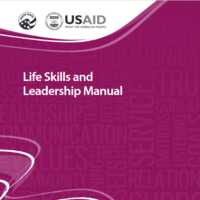Search
Books+
Searching 1,730 books
Search related to the career Counselling Psychologist
Counselling Psychologist
A counselling psychologist is a professional who specializes in providing therapeutic support and guidance to individuals dealing with various psychological and emotional difficulties. They are trained to help clients explore their feelings, thoughts, and behaviors in a safe and non-judgmental environment.
Education and Training:
Counselling psychologists typically hold a doctoral degree in psychology, which involves several years of rigorous academic study and supervised clinical training. They are required to complete internships and gain practical experience before becoming licensed practitioners.
Areas of Expertise:
Counselling psychologists possess expertise in various areas, including but not limited to:
1. Individual Counselling: They work one-on-one with clients to address personal issues such as anxiety, depression, grief, trauma, relationship problems, and self-esteem.
2. Group Counselling: They facilitate therapeutic groups where individuals with similar concerns can share experiences, provide support, and learn from one another.
3. Family Counselling: They assist families in resolving conflicts, improving communication, and fostering healthier relationships.
4. Career Counselling: They help individuals explore career options, assess their skills and interests, and make informed decisions regarding their professional paths.
5. Psychological Assessment: They conduct assessments to evaluate cognitive abilities, personality traits, and emotional functioning, which can aid in diagnosis and treatment planning.
6. Crisis Intervention: They provide immediate support and intervention during times of crisis, such as after traumatic events or in situations of severe distress.
Approaches and Techniques:
Counselling psychologists utilize various therapeutic approaches and techniques to support their clients, including:
1. Psychodynamic Therapy: Focusing on unconscious processes and early life experiences to gain insight into current difficulties.
2. Cognitive-Behavioral Therapy (CBT): Identifying and modifying negative thought patterns and behaviors to promote positive change.
3. Humanistic Therapy: Emphasizing personal growth, self-acceptance, and the client's inherent capacity for change.
4. Family Systems Therapy: Examining family dynamics and interactions to address relational issues and promote healthy functioning.
5. Existential Therapy: Exploring the meaning and purpose of life, and helping clients find personal fulfillment and authenticity.
Confidentiality and Ethics:
Counselling psychologists adhere to strict ethical guidelines, ensuring client confidentiality, respect, and professionalism. They prioritize the well-being and autonomy of their clients while maintaining professional boundaries.
Conclusion:
Counselling psychologists play a vital role in supporting individuals through challenging times, helping them develop coping strategies, gain self-awareness, and improve their overall mental well-being. Their expertise and compassionate approach make them valuable contributors to the field of psychology.
Source: Various AI tools
Psychology
Books tagged psychology
Self-help
Books tagged self-help
Entrepreneurship
Books tagged entrepreneurship
Vocational skills
Social entrepreneurship
Books tagged social entrepreneurship
Professors
Research
Books tagged research
Curriculum
Searched in English.





































































